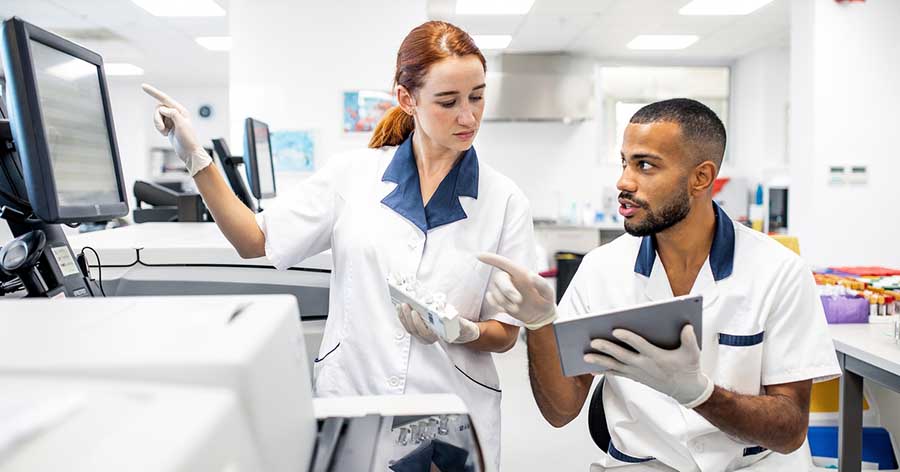The aim of diabetes education is to improve metabolic control, prevent acute and chronic complications and improve the quality of life of the individual with diabetes (Norris et al, 2001; Glenn et al, 2005); however, the most effective method for delivering education and teaching self-management skills remains to date unclear (Deakin et al, 2005).
Diabetes educational interventions
Previous studies of diabetes education programmes have reported conflicting results regarding outcomes (Norris et al, 2001; Ellis et al, 2004; Tankova et al, 2004; Formosa et al, 2008). It is recognised that improving knowledge alone is not sufficient to enhance adherence to regimens that involve behavioural change, although a few studies have shown that diabetes education programmes produce statistically significant health benefits at least in the short-term (Norris et al, 2001; Davies et al, 2008). Patient education activities are currently implemented in various ways in different countries, and most use primarily didactic education (Visser et al, 2001). Most countries are still at an experimental step of developing patient education in different ways (Deccache and Aujoulat, 2001); diabetes education is often prescriptive, offered on an ad hoc basis and is neither ongoing nor based on any proven educational or behavioural principles that have been reported to result in better outcomes, thus limiting its effectiveness (Cilia, 2007).
Research indicates that 50–80% of people with diabetes worldwide have significant knowledge deficits in relation to the management of their condition (Strine et al, 2005), and fewer than half of those with type 2 diabetes have ideal glycaemic control (Strine et al, 2005; Boren et al, 2007). Knowledge deficits can arise for different reasons and at different stages during life; however, little attention has been given to examining the reasons for such deficits (Rankin et al, 2011). Rankin et al (2011) suggest that people are either not receiving any diabetes education or the education offered is not effective. A fuller understanding of the factors that contribute to suboptimal self-management is important if improved diabetes outcomes are to be achieved (Formosa and Vella, 2011) and to inform future educational interventions (Rankin et al, 2011).
Realising that diabetes education must involve more than providing didactic knowledge and technical skills, educators and behavioural researchers have sought to determine what combination of educational elements are necessary to result in better outcomes (Anderson, 2007). Although research continues, it has been acknowledged that for diabetes educational interventions to be effective, the diversity of the population should be taken into consideration, including individuals’ educational background, level of knowledge about the disease, age, social characteristics, beliefs, behaviours, attitudes, values and skills (Mauldon et al, 2006; Formosa et al, 2008). It is now recommended that diabetes education needs to include psychological management, provide problem-solving skills and be based on a strong theoretical foundation (Anderson, 2007; Harvey and Lawson, 2009). Diabetes education must also be ongoing, with long-term follow-up after the initial education. However, for these criteria to be achieved, important decisions on the methods of provision and content of diabetes education need to be considered.
Lack of knowledge seems to be the most easily rectified reason for failure to achieve good self-care (Harvey and Lawson, 2009); however, some studies have identified how other factors such as culture and cognitive function could affect the interpretation and experience of diabetes and its management (Carbone et al, 2007; Sowattanangoon et al, 2009). Culture has a vital influence on health, shaping definitions of illness and determining how health-related decisions are made.
The way forward
Study findings stimulate discussion concerning what is crucial to improving self-management and to obtaining better glycaemic control in people with diabetes. The ethical and financial aspects of continuing to invest in diabetes self-management education (DSME) need to be considered in light of studies that have repeatedly reported that improved knowledge about diabetes is not sufficient and does not result in improved glycaemic control (Anderson, 2007).
Diabetes education is still viewed by many as a process whereby individuals learn how to self-manage their diabetes and later apply what they have heard and learned (Anderson, 2007). However, individuals’ commitment to excellent self-management usually diminishes as they respond to the demands placed on them by their families, friends and work, as well as being affected by cultural and community influences.
In order to improve diabetes self-management, healthcare professionals must discover innovative ways that could help individuals with diabetes maintain necessary changes in their behaviour and lifestyle. Instead of trying to fit individuals into predetermined self-management interventions, flexible self-management interventions that are responsive to individuals’ unique daily and cultural needs are recommended (Funnell et al, 2008).
There is an argument that most of the current diabetes educational approaches are inappropriate, as they have shown minimal effect on improving patient outcomes (Norris et al, 2001; Duke Clinical Research Institute, 2005). There is minimal robust statistical evidence to demonstrate the benefits of health education for people with diabetes. This disappointing lack of evidence will not, of course, stop diabetes education programmes, but must serve as a motivation to all healthcare professionals to think of innovative ways to deliver important information effectively to individuals with diabetes. This would facilitate change in their health behaviour, resulting in improved diabetes control with a reduced risk of complications.
The degree to which individuals follow appropriate self-care behaviours is determined by their health beliefs (Harvey and Lawson, 2009). Most prominent health behaviour theories, such as the health belief model (Becker, 1974), the theories of reasoned action and planned behaviour (Ajzen and Fishbein, 1980), the transtheoretical model (Prochaska and Di Clemente, 1986) and the social cognitive theory model (Bandura, 1986) emphasise the importance of beliefs in health education, as well as the importance of self-efficacy (the development of personal skills and self-confidence by the individual). They also highlight the importance of the influence of social role models, family and peer groups, and the importance of recognising that individuals in a population may be at different stages of change.
A body of thought underpinning this approach is empowerment (Funnell et al, 2008), a philosophy of care that emphasises a collaborative approach to help facilitate the self-directed behavioural change of individuals. Diabetes UK has also confirmed that educational interventions involving individual collaboration have shown to be more effective than didactic education (Diabetes UK, 2006).
Another example of a diabetes education programme that has demonstrated some measurable improvements in outcomes is the Diabetes Education and Self-Management for Ongoing and Newly Diagnosed study (DESMOND; Davies et al, 2008). This programme follows the NICE (2003) recommendations for evidence-based group education programmes. This programme is underpinned by a philosophy that is dedicated to empowering people with diabetes to take the lead in self-managing their condition. Davies et al (2008) report that participation in the programme resulted in greater improvements in weight loss, smoking cessation and improved beliefs about illness; however, there was no difference in HbA1c levels up to 12 months after diagnosis.
A personalised follow-up plan including ongoing diabetes self-management support (DSMS) is also being advocated to help people reach their goals (Funnell et al, 2008). DSMS is being defined as a new way to assist individuals with diabetes to implement and sustain the ongoing behaviours needed to manage their condition. This approach differs from traditional DSME, as it is more patient-centred; it is designed to meet the educational and support needs as identified by the individual at the time they are experienced. Since the issues addressed are those requested by the individuals during clinic visits or educational sessions, the education given will be culturally appropriate and consistent with adult learning theories (Funnell et al, 2008). This can only be achieved by good communication to ensure that individuals are receiving the support they need for managing their diabetes, and at the time when they need it most. The true success of diabetes education will only be measured in better behavioural and health outcomes; effective education involves creating a situation where individuals can actively participate in the management of their condition.
Good communication is the basis for effective cooperation (Schoop, 2008), and effective communication is crucial for ensuring that individuals receive high-quality care and become knowledgeable about their diabetes. The ongoing discourse between all parties is necessary for behavioural change to occur. Behavioural change is more likely to be a success if those it affects are willing collaborators in care, rather than imposing changes on individuals in an authoritative way; thus opportunities for collaborators to discuss and identify new strategies that enhance health are warranted. For change to occur, all parties need to understand why a particular issue is sufficiently important, and why it therefore needs to be adopted. As healthcare professionals dealing with people with diabetes in routine clinical practice, we need to listen to individuals’ needs, show empathy and equip them with the necessary skills during the consultation visits to help them adapt to health behaviour regimens in an effort to prevent life-threatening diabetes-related complications.
Innovative methods of education encompassing empowerment, support and good communication skills should be considered as highly relevant approaches to promote informed decision-making in individuals with diabetes. These methods should address not only medical aspects of diabetes, but also psychosocial and cultural factors, which have shown to have a great impact on health. Individuals with diabetes should be acknowledged as experts in their own support needs; instead of including them in predetermined self-management educational programmes, flexible self-management interventions that are directed towards their specific needs should be considered.
Conclusion
Previous studies of diabetes education programmes have reported conflicting results on the outcomes of diabetes education (Norris et al, 2001; Tankova et al, 2004; Formosa et al, 2008) and imply that changes to diabetes education need to be made. Improvements in the approach of diabetes education, with attention given to the application of health psychology, health behaviour theories, communication theories, patient empowerment and cultural beliefs, may improve knowledge and translate into improved behavioural change outcomes and quality of life.
Some countries, such as the UK (Davies et al, 2008), have started reviewing these needs and are exploring the best way to bring about change to educational approaches, which has resulted in demonstrable improvements in certain outcomes (Davies et al, 2008). However, many countries are still in their infancy as regards the necessary criteria for effective diabetes education. Rethinking diabetes education and adopting innovative approaches that include ongoing DSMS and empowerment should be considered in order to translate investment in diabetes education into long-term quality-of-life improvements and decreased complications, as well as alleviating the financial burden that diabetes imposes.
More research is warranted to explore further psychosocial interventions in diabetes care. There needs to be a shift from the traditional biomedical model of care into a biopsychosocial model of care that all medical and allied healthcare professionals can agree upon; this will be the first step to achieving positive change.





Developments that will impact your practice.
29 Aug 2025